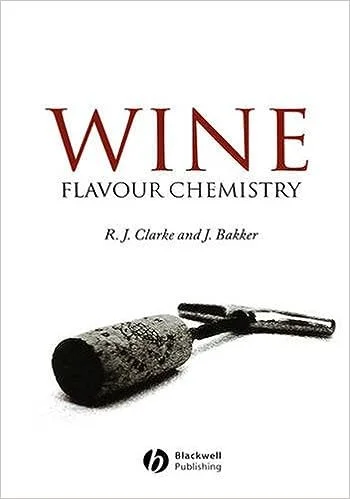Applying serious chemistry to seemingly subjective issues of wine flavour, the authors of this exceptional text provide an explanation for the perceived flavours of various wines and their chemical composition.
Drs. Clarke and Bakker are both esteemed British enologists, long-time beverage industry researchers and consultants, and obviously well suited to the odourous task. Dr. Clarke was co-editor of the encyclopedic six-volume study, Coffee.
Following a basic introduction to the various factors affecting the flavour and color of wine, the authors confront the controversial issue of "Grape Varieties and Growing Regions," claiming that there is no scientific proof that soils have much affect on wine flavour.
"The vine plant is thought not to need an especially fertile soil; in any event, the plant will not pick up nutrients in excess of its need, even though they may be present," they point out. "The direct effect on resultant wine flavour is therefor questionable."
While Old World wintners emphasize the importance of "terroir," or the region in which a wine grape is grown, New World wine-makers claim climate has a stronger influence on wine quality and flavour. The authors beg off on the dispute with a call for further studies.
Drs. Clarke and Bakker are more definitive on the parameters influencing taste, defining the chemical compounds that are most critical to wine flavour and how they are affected by vinification practices and aging.
An essential text for almost anyone involved in the wine industry, this book provides much useful information on the defining characteristics of a wide range of grapes and wines, complemented by tables and charts.
